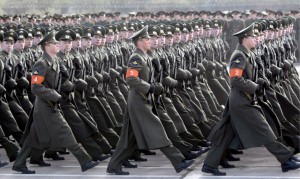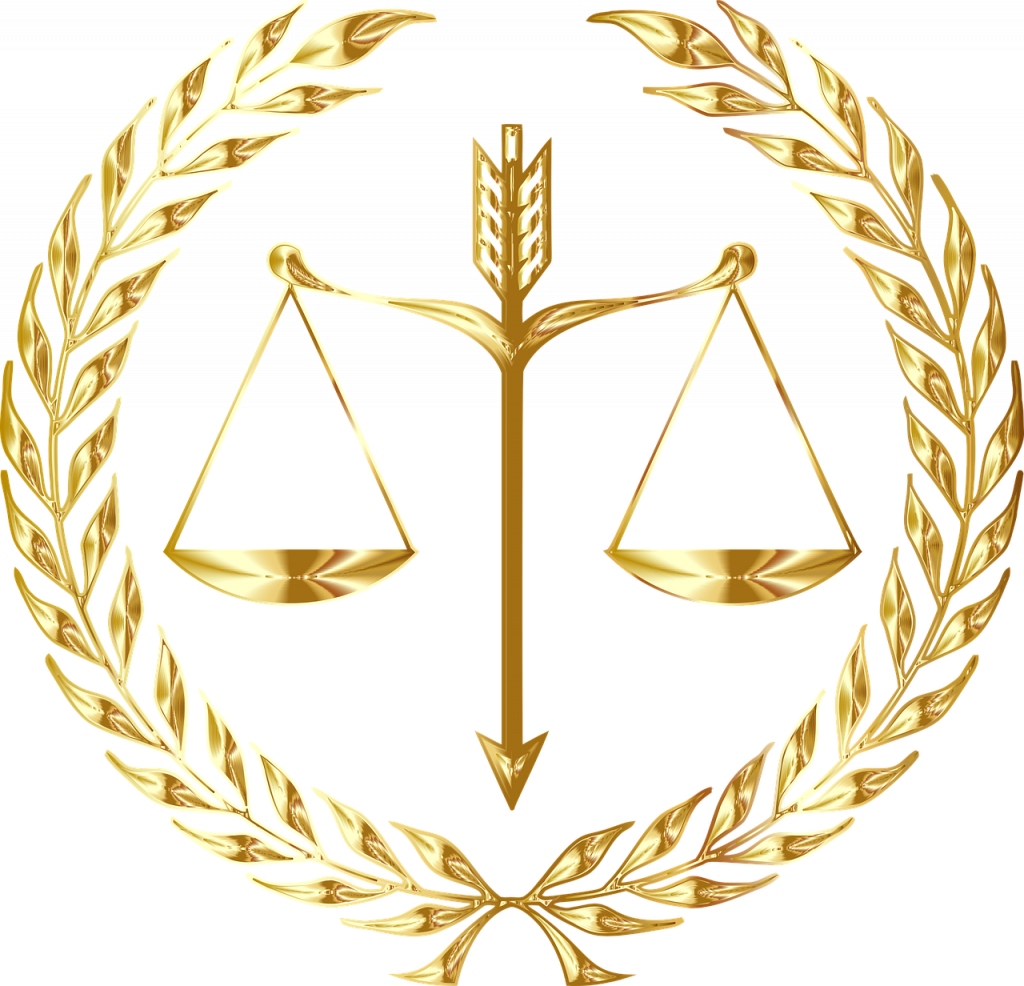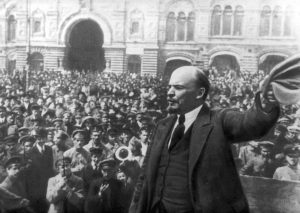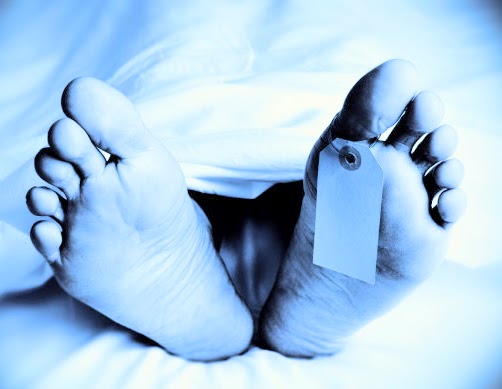Oscar Wilde said that the best way to get rid of a temptation is to yield to it. Unfortunately many Brits use this method for getting rid of the fascist temptation.
When they find something wrong with Her Majesty’s government, they turn their thoughts not to restoring history’s greatest constitution but to extolling the virtues of foreign politicians who detest our constitution, fascists of various red, black or brown hues.
Hence after the First World War many Brits became groupies to the murderous maniac Lenin, his worthy successor Stalin and his equally worthy disciple Hitler.
Lenin, in one of his few lucid moments, ungratefully called his Western supporters ‘useful idiots’. Mussolini and Hitler treated their fans with only marginally more respect.
Meanwhile the Bloomsbury set loved red fascism, and the Cliveden set the brown variety. George Bernard Shaw delivered a speech saying that he could die happy knowing that the future of the world was safe in Stalin’s hands.
Unity Mitford expressed her admiration for the brown cause by having group sex with SS officers.
Moura Budberg, Nick Clegg’s Russian great-aunt, used a similar method for converting British celebrities to the cause of the Soviet secret police she served.
Thousands of volunteers inspired by Bloomsbury propaganda went to give their lives for the noble cause of trying to turn Spain into Stalin’s colony complete with the GULAG.
A few years later British youngsters were joining the SS Britishches Freikorps – in smaller numbers, but then Hitler’s Germany was at war with their country.
This tradition of useful idiocy is alive and well. Today’s object of adulation is the regime that pulled together the red and brown strands, adding one of organised crime for good measure: the kleptofascist KGB junta fronted by Col. Putin.
Driven to despair by our own self-serving Quisling government, good conservative people are looking for angels where only demons can be found.
One hopes this is mostly caused by ignorance. If they really realised that Putin’s regime is indeed a KGB junta, indeed kleptofascist, and indeed mortally dangerous to the West, they’d recoil in horror.
Then again, I suspect that, just like the Bloomsbury lot, those who don’t know simply don’t want to know. For the facts are as much in the public domain now as they were then.
Every time I describe Putin’s regime as kleptofascist, some of my conservative readers target me for their slings and arrows.
Yet Putin’s regime is just that, kleptofascist, and to prove that I propose a short list of characteristics shared by all fascist regimes, different as they may be otherwise.
Let’s see how many of these boxes Putin ticks.
BOX 1: Populism combined with chauvinism.
All fascist regimes rally the masses by redirecting their national resentments into the conduit of jingoism.
It’s the regime’s task to correct an historical wrong and restore the nation to her past grandeur. For Hitler that was the Germanic conquest of the Roman Empire, for Mussolini the glory of ancient Rome.
Putin is doing exactly the same with Russia. He has described the collapse of the Soviet Union as “the greatest geopolitical catastrophe of the 20th century”, and vowed to right that wrong.
Using the most thunderous and nauseating propaganda this side of Stalin, Putin is rallying his largely impoverished population under the banners of Russia’s past redemptive glory, both under the tsars and the Bolsheviks.
BOX 2: Externalising evil.
Since Russia herself is a priori perfect, whatever privation people have ever suffered or are suffering has to be put down to the perfidy of outside enemies.
All fascist regimes, including Putin’s, cast the non-fascist West in that role, especially those ‘Anglo-Saxon’ vermin inhabiting Wall Street and the City of London.
In addition, each fascist regime has its own special enemies, such as Jews for Hitler or Ethiopians for Mussolini.
In Putin’s Russia these are ‘Ukrainians, ‘Anglo-Saxons’ and all those neighbours who cling to a modicum of independence.
BOX 3: Internalising the good of the nation within the person of the leader, whose approval must gravitate towards 100 per cent.
In Russia this idolisation of Putin is reaching Stalin’s proportions, though his public support is still somewhat short of the 105 per cent Stalin tended to score.
Putin’s Western groupies cite this adulation as proof of Putin’s virtue. Doesn’t public support justify any regime? Vox populi and all that.
Well, when public support gravitates towards 100%, the only thing it justifies is the certainty that the country has no free press.
BOX 4: State control of the media and their almost exclusive use for propaganda purposes.
Outbursts of public enthusiasm require a population house-trained to respond on cue. Hence the use of media for that purpose, accompanied, as it is in Russia, by the suppression of dissenting publications and broadcast channels.
And it’s not just the media. Putin recently told historians that their task is to defend “our views and interests”, for example in explaining the Nazi-Soviet pact.
Toxic falsifiers of history claim that it pushed the button for the Second World War. The two most satanic regimes in history formed an ad hoc alliance to divide Europe between them.
They then kicked off history’s most devastating war by assaulting Poland from two sides.
Yet, explained Putin, historians must teach that none of this is true.
The Pact proved Stalin’s peaceful intentions.
And as to Poland, she had only herself to blame. Didn’t she grab a chunk of Czechoslovakia in 1938, when the Germans moved in?
Those media outlets in Russia that don’t go along with Putin’s view of the world have been either shut down or brought under government control.
Even the pro-Western websites I regularly read here have been blocked inside Russia. And Russia is researching the feasibility of shutting down the Internet altogether.
BOX 5: The leader’s will replacing the rule of law. This means, among other things, that the leader can choose how many or few people he wants to terrorise.
How many he does terrorise therefore reflects not the essence of his regime, but its current needs.
On Putin’s watch the number of people killed, roughed up or imprisoned for political reasons is in the thousands, not the tens of millions Russia lost under Lenin and Stalin.
But no safeguards exist to prevent Putin from unleashing mass terror should he so choose.
Law enforcement in Russia doesn’t enforce the law. It has been turned into a giant Mafia family, specialising in all the traditional Mafia pursuits, from extortion and protection rackets to robbery and contract killings.
Russians are scared of the police more than of criminals, because the police are the criminals.
Beatings and torture – sometimes to death, as in the Magnitsky case – are everyday occurrences in Russian police stations. Yet, on the rare occasions such crimes reach the courts, the sentences are either derisory punishment or acquittal.
BOX 6: Acquisitive aggression against neighbours. Fascist regimes see expansionism as self-vindication. They equate greatness with size, the bigger the better.
As a pretext for aggression they highlight their former ownership of an adjacent country or parts thereof, or else the plight of their ethnic brothers in that country, such as Hitler’s Polish and Czech Germans – or Putin’s Ukrainian Russians.
Hence the next flashpoint could come from Putin’s attack on Latvia, Lithuania and Estonia, all with large Russian minorities.
Putin has personally started three aggressive wars: against Chechnya in 1999, Georgia in 2008 and the Ukraine in 2014. The Middle East could well be next in line.
The capital of Chechnya Grozny was bombed flat, even though its population was 80% Russian.
Georgia was baited into attacking her former province Abhazia, which Putin’s stooges used for shelling Georgian territory. That gave Putin the pretext he needed to bring Georgia back into the fold.
Then of course came the naked aggression in the Crimea and the Ukraine.
Meanwhile, bringing to mind the words ‘teapot’ and ‘kettle’, Putin’s media are describing the Ukraine’s government as fascist, out to exterminate the Russians, along with every other minority.
This even though the extreme-right parties only polled a mere 1.5% of the Ukraine’s electorate, as opposed to the 25% such parties routinely get in Russia herself.
And regular neo-Nazi marches carry their swastikas through Russian cities without being harassed in any way.
BOX 7: Creating or, if they already exist, supporting likeminded groups around the world.
The pattern is well established. The Bolsheviks bankrolled every communist party in the world, using them for espionage and subversion.
The Nazis did exactly the same by financing their own network, including such organisations as Friends of New Germany, the German American Bund and the British Fascist Union.
Following the example set by his role models, Putin is actively cultivating neo-fascist groups in Europe.
It recently came to light that the Russians are financing France’s National Front, Belgium’s Vlaams Belang, Greece’s Golden Dawn, Hungary’s Jobbik, Italy’s Northern League, Austria’s Freedom Party.
When these facts became known, Marine Le Pen insisted that accepting Putin’s millions doesn’t mean following Putin’s policies.
Of course it doesn’t. Her party supports the rape of the Ukraine on merit, while Putin funds her for altruistic reasons alone.
BOX 8: Corporatist economy.
Unlike socialist or communist states to which they are closely related, fascist regimes typically eschew de jure nationalisation in favour of de facto control.
Rather than shooting owners, the regime turns them into managers beholden to the leader.
In Putin’s Russia it’s possible to amass a large fortune only by Putin’s permission, which is granted only to his henchmen.
What’s in Russia called ‘the vertical of power’ goes right through the economy, with the so-called oligarchs having only the leasehold on their wealth.
When they step out of line, their businesses are either destroyed or taken over by Putin’s cronies, while they themselves are killed or imprisoned or, if they’re lucky, allowed to flee abroad.
BOX 9: Allowing political opposition for window-dressing only.
Such conditions existed in Germany and Italy, and they are also observable in Putin’s Russia. The country’s parliament, the Duma, is filled with Putin’s cronies.
Political protests in Russia are actively discouraged. Those daring to protest are often prosecuted on trumped-up charges, roughed up or murdered.
Many politicians and over 100 journalists have been murdered during Putin’s tenure, all of them his opponents.
Most of those murders go unnoticed in the West, and only the more spectacular ones, such as those of Anna Politkovskaya and recently Boris Nemtsov, reach our papers.
The London murder of Alexander Litvinenko did make a bit of a splash, mainly because of the esoteric murder weapon, Polonium.
BOX 10: Militarisation. This can be used either for actual aggression or blackmail.
Russia is overhauling her armed forces to the tune of 290 billion pounds, with a particular accent being placed on strategic arms.
New weapon systems are being brought on stream at a rate far exceeding Nato’s. Among them are disguised armoured trains with nuclear missile launchers.
The overall strength of the Russian army is about a million, a quarter of them reservists, and growing fast. Last month they conscripted another 100,000 recruits.
Many training activities involve airborne troops, whose strength is being beefed up to 60,000, roughly four to five divisions. By contrast, the US has only one fully trained airborne division, 82nd. (Some others are called airborne but do no jump training.)
Paratroops are offensive: they are too lightly equipped to be much use in defence.
Tanks are another clearly offensive weapon, and here the comparison between Russia and Europe is most instructive.
The three biggest Western European armies, French, German and British, have, respectively, 423, 408 and 407 tanks.
By contrast, Russia officially boasts 15,500 tanks in active service. But even that number is misleading.
Unlike Nato, the Russians don’t destroy decommissioned tanks. They mothball them in warehouses.
Should the need arise, those obsolete but perfectly usable machines can be taken out and thrown in.
That’s what happened in the Second World War, when the Germans wiped out the regular Soviet tank force in the first few days.
Much to their astonishment, new Soviet tank divisions appeared out of thin air, and the German intelligence couldn’t figure out their provenance.
How many of those mothballed tanks are there now? In the 1970-80s the Russians had 50,000 tanks, more than the rest of the world combined.
Many of those machines can probably still be thrown into battle should the need arise. And the Russians are giving every indication that the need may arise.
They are calling up reservists, constantly increasing both the duration and frequency of such call-ups.
They are conducting joint exercises with their puppet Belorussian army.
Other large-scale military exercises are being conducted in every border area from the Baltic to the Black Sea, from the Far East to Kaliningrad, formerly Konigsberg.
Putin is clearly creating two powerful salients, the southern one in the Crimea and the northern one in Kaliningrad, where short-range, radar-busting Iskander missiles are being deployed.
For the first time since Brezhnev, Russian strategic bombers are regularly buzzing the airspace of Nato members, while Russian fighters are tracking Nato planes.
Hardly a day goes by that Nato planes aren’t scrambled to intercept Russian bombers all over the world, including the California coast. In Syria Russian and American planes find themselves on a collision course every day, and Turkey’s airspace is being routinely violated by the Russians.
Russia lacks any obvious allies, which was proved when the UN General Assembly condemned the annexation of the Crimea by 100 to 11, with the rest abstaining.
Apart from the former Soviet republics located a few hours from Russia by tank, her 11 allies included Cuba, North Korea, Sudan and Zimbabwe.
Therefore Putin knows he has to be prepared to fight his corner all alone and he’s beefing up for it.
Putin’s Russia ticks all these boxes, which makes her undeniably fascist. Comparing Putin specifically to Hitler, however, one must out of fairness point out a significant difference, and this is why I describe Putin’s regime as not just fascist but kleptofascist.
Hitler’s regime wasn’t organically fused with gangster groupings – in fact both he and Mussolini suppressed organised crime.
Putin, on the other hand, has a long history of not only working hand in glove with gangsters but actually being one himself.
Just take a look at the dossier published by Marina Salye, who in 1992 headed the Petersburg Council commission investigating Putin’s business machinations when he was still a lowly deputy mayor.
Among other choice bits, the documents shows that Putin signed deals to export $100 million worth of raw materials in exchange for food. The raw materials dutifully left Russia. No food came back in return – this at a time of rationing in Petersburg.
It’s no wonder that under Putin, Russia’s economy is criminalised from top to bottom, and he himself is one of the world’s richest men, with the lowest estimate of his personal wealth standing at $40 billion.
Yet Putin is still claiming his share of fans in the West.
They read that Putin bans homosexual propaganda and nod their approval. But then neither Hitler nor, say, Osama bin Laden was known as a champion of homosexual marriage.
They read Putin’s criticism of Western decadence and agree enthusiastically. But then ISIS are saying exactly the same things about the West, most of them correct – so are we going to support them too?
They see footage of Putin and his cronies going to church, and don’t realise that these new-fangled believers often forget that Orthodox Christians cross themselves from right to left, not from left to right as they do in American films.
Putin’s fans insist that any frank assessment of Putin’s regime is a sign of Russophobia, even if it comes from independent rating agencies.
I looked at such ratings – only to find confirmation for the feeling deep-seated in the breast of most Russians and Peter Hitchens: the whole world is against Russia. All those rating agencies collude to cast Russia in a bad light.
Judge for yourself. In the rule-of-law category Russia came in at Number 92, out of 97 countries rated. That’s one rung below Belarus but – a glorious achievement! – one above Nicaragua.
In upholding fundamental rights, Russia’s rating was even higher: 82, one behind the Emirates, where you can go to jail for a little hanky-panky outside marriage. One is prepared to cheer, but then one’s ardour is doused by the cold water of some other ratings.
Russia ranks 148 out of 179 on freedom of the press. That rating places Putin’s Russia below Bangladesh, Cambodia and Burundi.
Russia haters refuse to look on the positive side: Putin’s bailiwick is still above, if not by much, Iraq and Gambia. If that’s not the crowning achievement of Putin’s reign, I don’t know what is.
Oh yes, I do. Russia, I’ll have you know, didn’t drop any lower than Number 127 on the corruption rating, where she finds herself in a nine-way tie with such bastions of legality as Pakistan and, again, Gambia.
And still some British conservatives cheer Putin on.
Those good people don’t realise what it means that the Russian government, from Putin down, is made up almost entirely of KGB officers.
In fact, the eminent Russian sociologist Olga Kryshtanovsky, who’s actually a Putin supporter, has analysed the CVs of the top 1,061 government officials in Russia. She found out that 80% of them are career KGB officers.
Some Westerners don’t seem to realise that party and KGB officials could under no circumstances rise to their positions without being profoundly evil men.
All communist countries had this in common, which incidentally raises interesting questions about Angela Merkel, who held a high-ranking position in the East German Young Communist League.
Hence Western triumphalism about the collapse of communism in Russia was misplaced. Communism didn’t collapse.
Following the First Law of Thermodynamics is was simply transformed into something else, evil by any other name.
After all, the precedent of Nuremberg trials established that membership in a criminal organisation, in that instance the SS, is itself a crime.
Yet the SS was responsible for at most 10 million murders. The KGB murdered 60 million Soviet citizens.
There’s another important difference between the SS and the KGB. The German government has repented Germany’s sins.
In Russia there was no repentance. On the contrary, Colonel Putin and his gang are openly proud of the Soviet Union and its criminal history.
“There’s no such thing as ex-KGB,” Putin once said. “This is for life.”
Had Western leaders and commentators had the benefit of the kind of experience I’m cursed with, they would be less prepared to disarm, with the British army, for example, being reduced to a size it hasn’t seen for two centuries.
And they certainly wouldn’t be singing hosannas to Putin, the strong leader of Peter Hitchens’s fancy.
The Russians, they say, live so much better under Putin. Yes, which is why the male life expectancy there is way below 60, why 20% of the population live below the poverty line which in Russia is a paltry $174 a month, why 25% of Russian households have no sewerage and 20% no plumbing.
And, as we have seen, every characteristic of a fascist state is clearly visible in Russia.
Unfortunately the West traditionally displays severe learning difficulties when it comes to lessons of history.
For example, the Second World War could have been easily prevented by a resolute early response to German aggression.
Instead the West vacillated. The mantra of appeasement and ‘peace in our lifetime’ was the order of the day.
We were forewarned, but we weren’t forearmed. A tragedy followed.
And today, forewarned means foredisarmed. I hope and pray that no catastrophe will ensue. I fear it might.










Comments